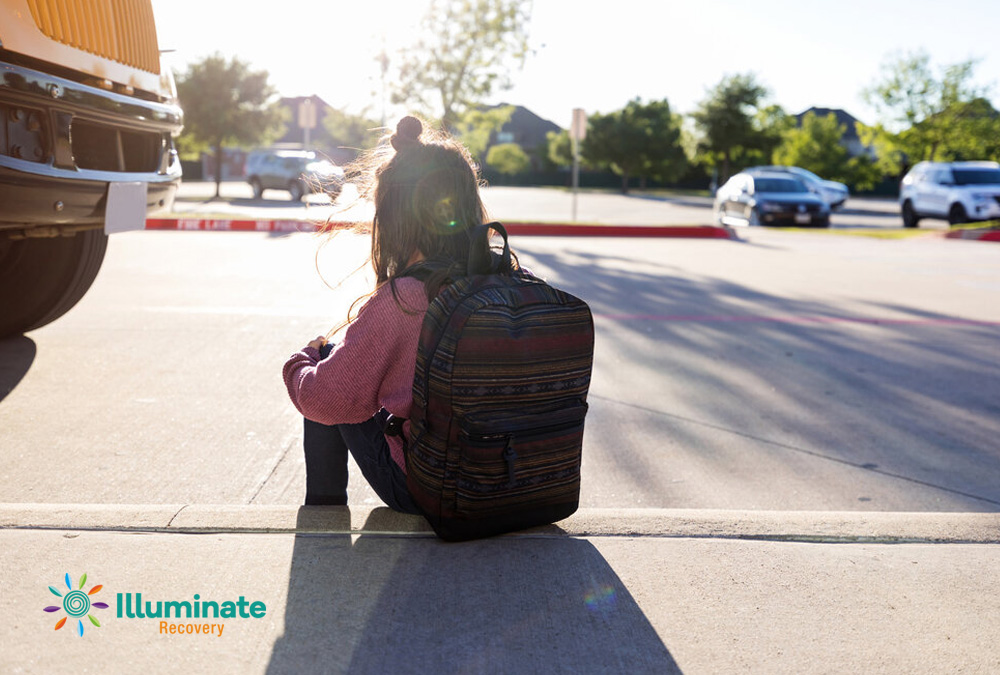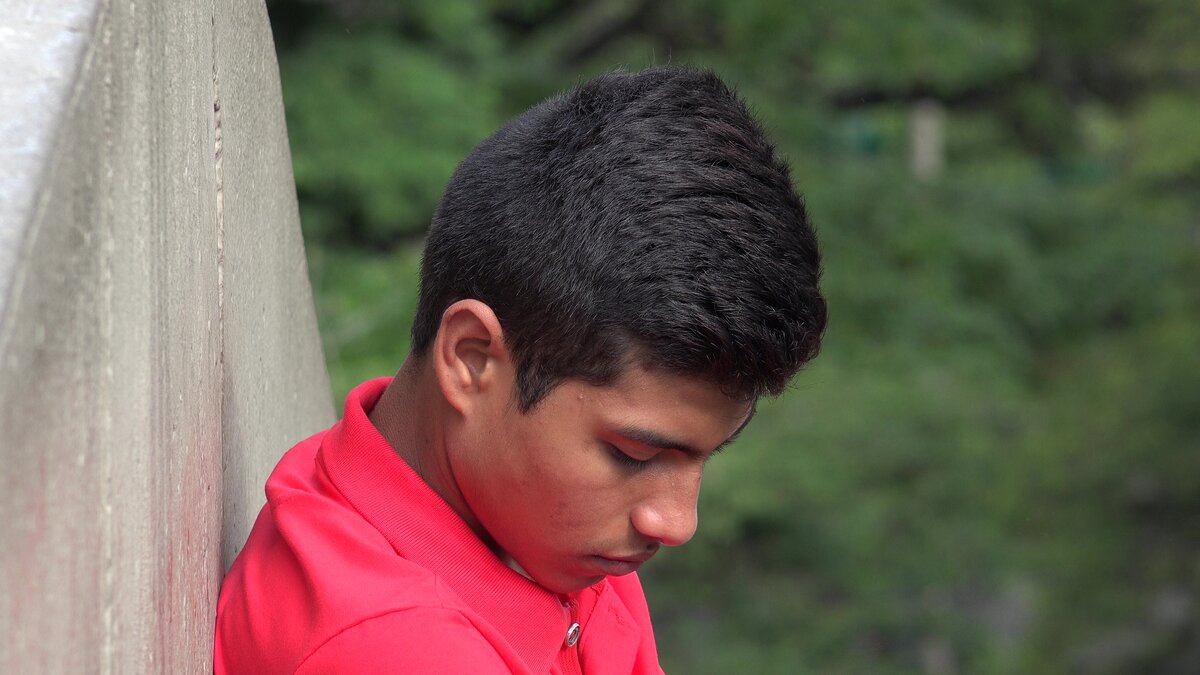
The Connection Between Childhood Trauma and Addiction
Photo from Getty Images
Originally Posted On: The Connection Between Addiction and Childhood Trauma (illuminaterecovery.com)
Experiencing trauma can be especially damaging to someone at a young age. Because a child is such a vulnerable person whose brain is still in the early stages of development, traumatic experiences may create a much more damaging impact on their lives than it would an adult. It is not uncommon for those experiences to follow them long into adulthood and may even have an impact on the rest of their lives.
Trauma is damaging for a person of any age and can lead to many mental health issues.
These include:
- Depression
- Anxiety
- Panic Attacks
- Post-Traumatic Stress Disorder (PTSD)
- Other Mental Health Issues
These symptoms can be amplified when they happen to a child because they are less capable of working through, or even understanding, the traumatic events that they have been through or are currently experiencing. A child may not have the means to escape their abuse or abuser and have to endure many years of physical and psychological damage. These issues can be debilitating, and without the right treatment, can have tragic circumstances later in life, including death by suicide.
Unfortunately, people who have experienced traumatic events as a child are much more likely than the average person to suffer from drug dependency or alcoholism. This significantly impacts their well-being and even their socioeconomic situation. These problems include lower success in educational institutions and in the workplace, and sadly many people end up living below the poverty line. Evidence suggests that childhood trauma may even be linked to obesity and eating disorders.
How Does Childhood Trauma Affect the Brain?
The reason children are much more susceptible to lasting effects of trauma is that their brains are growing and developing at a much quicker pace than an adult brain. The brain of a child is much more sensitive to the environment around them. New neural structures are forming in a young brain constantly. This development is called neuroplasticity and refers to the ability of the neurons, which are the building blocks of the brain, to change and adapt.
In young people, new experiences are what form a person, and adaptability within the brain is consistently being challenged. An infant or toddler is learning language and how to walk and interact with caregivers. As they experience life around them, the circumstances that children encounter affect them and how the brain changes and grows. In fact, for a few years, new neural connections are taking place every second of the child’s life.
This is why the encounters of abuse or other horrific events at a young age are so damaging, as they are actually embedded into the structure of a rapidly forming brain. This may be one of the reasons that trauma at a young age is even harder to treat than that of older individuals.
The Trauma and Addiction Connection
 Photo from Getty Images
Photo from Getty Images
According to The Adverse Childhood Experiences (ACE) Study, children who had experienced childhood trauma had a 4- to 12-fold increase for drug dependency, alcoholism, mental illness, and even suicide attempts than people who had experienced no trauma as children. There is no single reason that links childhood trauma to addiction, but there is a complex relationship that has a spectrum of causes.
One of the most common reports of those who have experienced childhood trauma is that they form drug or alcohol dependencies in an attempt to self-medicate. When not receiving the proper therapy and medications for mental illnesses, which may include PTSD, a person may turn to other substances to try to relieve the symptoms. In many cases, the person may feel that they have low self-worth and that they have no other option but to use substances to relieve their pain and mental anguish.
Many people do not even realize that childhood trauma has led them to addiction. People may attempt to repress memories of abuse, which can further perpetuate depression and anxiety. In some cases, the victim may be ashamed or embarrassed to acknowledge the abuse or talk about it with others. Repressing these memories can perpetuate the escape into alcohol or drugs in an attempt to relieve their suffering. The short-term, immediate relief in abusing these substances may temporarily alleviate the symptoms for those suffering from PTSD. However, the ramifications of the overuse of these substances exacerbate their problems instead of dealing with the source.
Examples of Childhood Trauma Influencing Drug Addiction
There are many different forms of childhood trauma that can lead to drug dependency or other forms of addiction later in life. Unfortunately, many of the reasons are linked to abuse. The most common types of child abuse are the following:
Physical Abuse
Physical abuse can occur in a child’s life, from a parent or guardian, a relative, or a person in authority such as a teacher. One common type of physical abuse seen in infants is shaken baby syndrome. When a baby is shaken, it can lead to instant damage to the brain. The fragility of the body, brain, and muscles make a baby especially susceptible to this type of abuse. Every part of the body is in early stages of development and lacks strength to endure the damages incurred. Other forms of physical abuse throughout childhood include hitting, burning, and cutting.
Neglect
Sadly, neglect is arguably the abuse seen most commonly in traumatized children. The most obvious forms of neglect include failure to provide a child with proper, nutritional food, shelter, and a safe environment to live and grow in. Other forms of neglect are more subtle but just as damaging. These include refusal to provide a child with access to proper education and the opportunity to make important social connections. Furthermore, failure to provide the child with proper health care is also considered neglect. Sometimes, this type of abuse is done in the name of religion or as a way to “toughen” kids up, but this is still harmful with lasting negative impacts.
Emotional Abuse
Emotional abuse can happen when a caregiver or person in authority regularly berates a child or ignores their emotional needs or pleas for help. An abuser may criticize everything a child does or mock them. Other forms of emotional abuse can include a caregiver choosing a favorite sibling and putting the other one down as being unworthy. Emotional abuse can be subtle and is often harder to identify in childhood. It is much more difficult to discover and, therefore, perpetuated more than other kinds of abuse.
Sexual Abuse
One of the most horrible kinds of abuse is sexual abuse. Sexual abuse is often committed by a caregiver or close relative, sibling, person in authority, or by peers or acquaintances of the child. Sexual abuse ranges from touching a child in inappropriate places to sexual penetration. Any sexual act under the age of consent is an extremely damaging type of abuse that is often a direct cause of drug or alcohol dependency later in life. Sex trafficking of minors is another form of abuse that is increasingly becoming more common.
Although childhood trauma is often caused by abuse, this is not the only reason a child can experience lasting trauma. Simply witnessing a violent crime can cause trauma. Surviving a tragic event such as a car crash can lead to PTSD. Experiencing natural disasters such as earthquakes, tornados, fires, and tornados at a young age are also traumatic experiences.
Treating Co-Occurring Addiction and Childhood Trauma
 Photo from Getty Images
Photo from Getty Images
There is no single link between childhood trauma and the path to drug or alcohol dependency. The connection between the two is complex and complicated. Many children have experienced trauma resulting from abuse or other challenges, and the results of each case are unique. Someone who has experienced trauma may develop depression and turn to alcohol, while another who suffered the same trauma may have anxiety and become drug dependent. Finding the root cause of the dependency takes time and professional help. Treating the victims means treating multiple symptoms and different types of therapy and rehabilitation.
For example, patients suffering from PTSD as a result of childhood trauma are often successfully treated by a form of therapy called exposure. This treatment involves an exposure to the traumatic memories and events in their past to help them face them and move on. Exposure therapy has been highly successful and has led to healing in many patients. There is strong evidence that demonstrates this type of treatment can be safely done alongside rehabilitation of drug or alcohol dependency and may aid in the process of each. It is beneficial to treat trauma and addiction at the same time.
Recovery from Childhood Trauma and Addiction
If you are suffering from addiction as the result of childhood trauma, there are many important things to remember when going through the process.
- You are not alone. Many survivors of abuse feel guilt or shame and are hesitant to talk about it. In fact, failure to talk about it may be a trigger to depression or anxiety itself. Knowing you are not alone can help lessen the effect of triggers and relieve some of the related symptoms of mental illness.
- Childhood trauma is not your fault. Utilizing the help of professionals and talking to other people who understand your history may help you succeed. These elements in the treatment process can aid in the realization that the victim is not at fault.
- You deserve a life free from drug and alcohol dependency. There is help to confront and ease the damage done by childhood trauma and to alleviate the desperate feelings you may be experiencing with the help of professionals.
- You are safe. There are safe spaces where you can discuss the situations of your trauma with no judgment, and there are methods professionals have available to help let it go.
Seeking Integrated Treatment for Childhood Trauma and Addiction
 In the rehab program at Illuminate Recovery, we are professionals that have expert training to help those struggling with co-occurring addiction and childhood trauma, including PTSD. The reasons for your trauma-related addiction may be complex, but specialized treatments can help confront your situation with multiple therapies at once for a successful recovery. Please reach out to us for the very best care if you or a loved one needs with addiction and PTSD.
In the rehab program at Illuminate Recovery, we are professionals that have expert training to help those struggling with co-occurring addiction and childhood trauma, including PTSD. The reasons for your trauma-related addiction may be complex, but specialized treatments can help confront your situation with multiple therapies at once for a successful recovery. Please reach out to us for the very best care if you or a loved one needs with addiction and PTSD.
